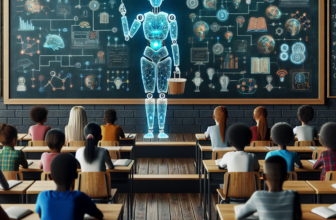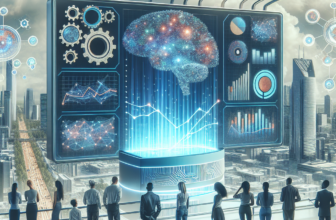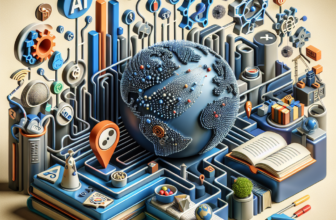Enhancing Education with AI: Promising Possibilities for Students

Enhancing Education with AI: Promising Possibilities for Students
In recent years, the integration of Artificial Intelligence (AI) in various industries has brought remarkable advancements and transformations. One area that shows immense potential for improvement through AI is education. With AI-powered tools and technologies, educators can provide personalized learning experiences, streamline administrative tasks, and enable seamless communication between students, teachers, and parents. In this article, we explore the promising possibilities AI offers to enhance education for students.
Personalized Learning Experiences
AI opens up possibilities for personalized learning experiences that cater to the unique needs and interests of each student. Intelligent tutoring systems, powered by machine learning algorithms, can adapt and tailor the curriculum to individual students’ abilities, pacing their progress accordingly. This ensures that students receive targeted instruction, maximizing their learning potential. AI algorithms can analyze vast amounts of data, allowing educators to identify areas where students may struggle and provide timely interventions.
Another AI-powered tool for personalized learning is adaptive assessments. These assessments use AI algorithms to dynamically adjust the difficulty of questions based on a student’s performance, ensuring a challenging yet attainable level. This approach allows students to learn at their own pace, preventing frustration from overly challenging content or boredom from material that is too easy.
Streamlining Administrative Tasks
Administrative tasks can often consume substantial time for educators and school administrators. AI technologies can automate and streamline these tasks, freeing up valuable time that can be spent on more valuable activities like lesson planning and individual student support. For instance, AI-powered systems can automate grading, reducing the time and effort required for educators to assess assignments and provide valuable feedback to students.
AI can also enhance administrative tasks related to scheduling and organizing school activities. Smart scheduling algorithms can optimize timetables, taking into account factors like teacher availability, room capacity, and student preferences. This ensures efficient use of resources and minimizes scheduling conflicts.
Seamless Communication and Support
AI-powered chatbots and virtual assistants can improve communication and provide support to students, teachers, and parents. These bots can provide instant responses to frequently asked questions, such as inquiries about curriculum, events, or policies, easing the burden on school staff who would otherwise have to address these queries individually.
With AI, language barriers can also be overcome. Translation technologies using AI algorithms can facilitate communication between students and teachers from different linguistic backgrounds, fostering inclusivity and enabling a diverse learning environment.
FAQs
Q: Can AI truly replace human educators?
A: No, AI cannot replace human educators. AI is meant to enhance and complement education, not replace it. The role of AI is to support teachers in providing personalized learning experiences, automating administrative tasks, and improving communication.
Q: Are there any ethical concerns with using AI in education?
A: Yes, there are ethical concerns when using AI in education. Privacy and data security must be carefully considered and protected, particularly when dealing with student records and sensitive information. Additionally, it is important to ensure that AI algorithms are transparent, fair, and unbiased, to avoid reinforcing existing social inequalities.
Q: Will AI-powered tools make education more expensive?
A: Initially, the implementation of AI-powered tools may require investment. However, in the long run, these tools can reduce costs by automating labor-intensive tasks and allowing educators to focus more on teaching and supporting students. The ultimate goal is to improve educational outcomes while ensuring accessibility for all students.
In conclusion, the integration of AI in education holds tremendous promise for enhancing learning experiences, streamlining administrative tasks, and improving communication between all stakeholders. It is crucial to approach AI implementation ethically and responsibly to address concerns and ensure that all students can benefit from these technologies.






